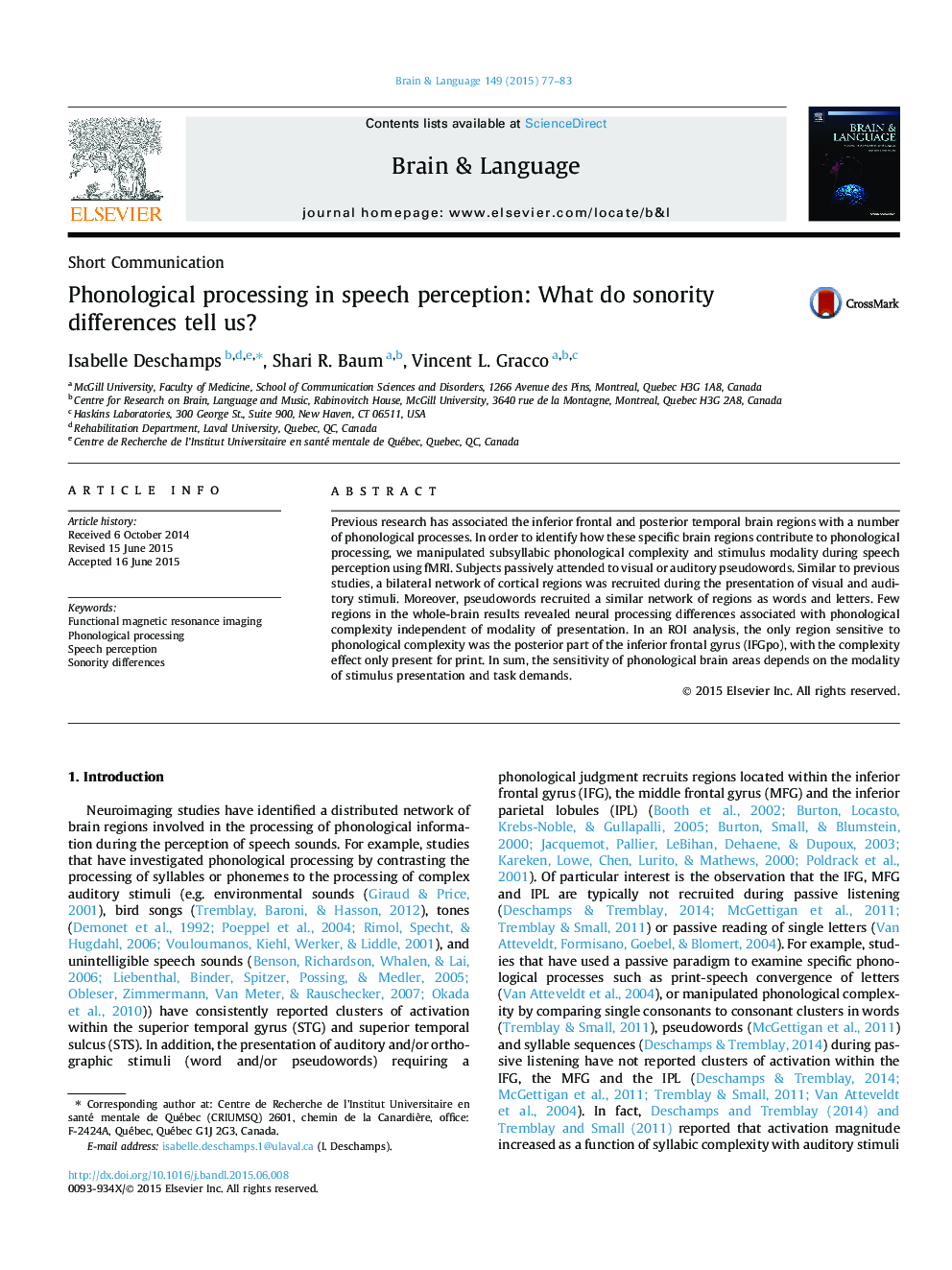| Article ID | Journal | Published Year | Pages | File Type |
|---|---|---|---|---|
| 7284166 | Brain and Language | 2015 | 7 Pages |
Abstract
Previous research has associated the inferior frontal and posterior temporal brain regions with a number of phonological processes. In order to identify how these specific brain regions contribute to phonological processing, we manipulated subsyllabic phonological complexity and stimulus modality during speech perception using fMRI. Subjects passively attended to visual or auditory pseudowords. Similar to previous studies, a bilateral network of cortical regions was recruited during the presentation of visual and auditory stimuli. Moreover, pseudowords recruited a similar network of regions as words and letters. Few regions in the whole-brain results revealed neural processing differences associated with phonological complexity independent of modality of presentation. In an ROI analysis, the only region sensitive to phonological complexity was the posterior part of the inferior frontal gyrus (IFGpo), with the complexity effect only present for print. In sum, the sensitivity of phonological brain areas depends on the modality of stimulus presentation and task demands.
Related Topics
Life Sciences
Neuroscience
Biological Psychiatry
Authors
Isabelle Deschamps, Shari R. Baum, Vincent L. Gracco,
